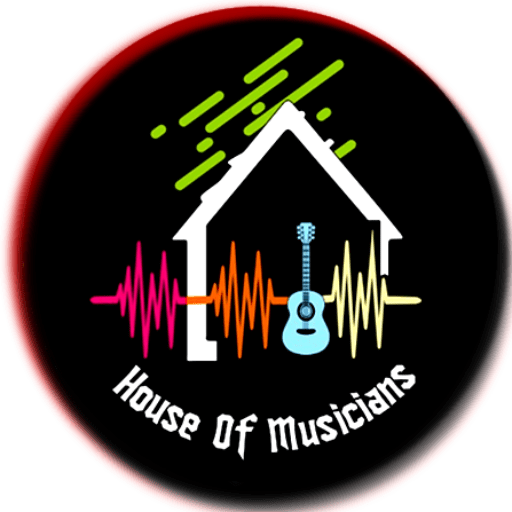Best Online Guitar Classes in India – Beginners, Adults, and Kids
Online Guitar Classes in India – A Complete Guide for Beginners, Adults, and Kids Learning guitar has always been a dream for many, but traditional barriers like distance, time, and lack of quality teachers often stood in the way. With the rise of digital platforms and high-speed internet, online guitar classes in India have become a practical and popular choice for learners of all ages. Whether you are a school student, a working professional, or someone looking to rediscover a passion later in life, online music education has opened up possibilities like never before. In this detailed guide, we will explore how online guitar lessons work in India, break it down demographically (beginners, adults, and kids), discuss costs, features, benefits, and highlight why platforms like House of Musicians are becoming the go-to choice for aspiring guitarists. Why Choose HoM Online Guitar Classes in India? Before diving into specific learner groups, it’s important to understand why online guitar classes have become so significant in India. Read moreGuitar Lessons in DubaiAccessibility Across Cities – From metro hubs like Delhi, Mumbai, Bengaluru, and Kolkata to smaller towns, online lessons bridge the gap where local quality teachers may not be available. Flexibility in Scheduling – Students can choose convenient time slots that fit around work, school, or family commitments. Variety of Styles – Indian learners now have access to global tutors who can teach everything from classical guitar and Bollywood music to rock, jazz, and fusion. Read moreMaking Guitar Accessible: Music Classes for Children with AutismAffordability – Online lessons are often cheaper than in-person classes, especially when factoring in travel costs and premium studio rates. Personalization – Most online platforms now offer one-on-one sessions, feedback recordings, and tailored lesson plans to suit each learner’s pace. Online Guitar Classes in India for Beginners For beginners, the journey can feel overwhelming. Questions like “How do I hold the guitar?”, “Do I need to learn music theory?” or “Should I buy an acoustic or electric guitar?” are very common. What Beginners Can Expect from Online Lessons Read moreGuitar Lessons for Children with Disabilities: Making Music InclusiveStep-by-Step Guidance: Starting from tuning and holding the guitar correctly. Basic Chords and Strumming: Focusing on easy chord transitions. Simple Songs First: Many Indian beginners are motivated by learning to play Bollywood songs they love. Understanding Rhythm: Essential for singing along or playing with friends. Confidence Building: Instructors often provide short-term milestones to keep beginners motivated. Why Beginners Prefer Online Classes No need to feel embarrassed in front of a big classroom. Recorded lessons allow for revision anytime. Easy to balance with school or work schedules. House of Musicians offers tailored beginner-friendly programs designed by experienced tutors like Pushkar Gupta, who ensure that students not only learn chords but also develop the confidence to play their favorite songs within weeks. Online Guitar Classes in India for Adults Adults often approach guitar lessons differently. Some may have learned briefly in their teenage years and now want to pick it up again. Others may see it as a creative outlet after long office hours. Challenges Adults Face Limited free time. Hesitation about starting late. Difficulty in finding structured lesson plans that fit their pace. What Adults Need in Online Guitar Lessons Flexible Scheduling: Evening or weekend slots. Stress Relief Through Music: Many adults use music as therapy. Customized Learning Paths: Focus on genres like Bollywood, soft rock, devotional, or Western classical. Affordable Packages: With family commitments, cost often becomes a consideration. Online classes eliminate the need to commute after work and let adults learn in their comfort zone. At House of Musicians, adult learners often join private live sessions to focus on Bollywood fusion guitar, devotional bhajans, or even Western classics. The teaching method emphasizes enjoyment first, while gradually building technical skills. Online Guitar Classes in India for Kids For kids, music education has benefits beyond just playing songs. Research shows that learning an instrument improves concentration, discipline, and creativity. Features Parents Look For in Online Guitar Lessons Safe and Engaging Environment – Classes need to be interactive and friendly. Focus on Fun Learning – Songs and exercises should be age-appropriate. Parental Feedback – Regular progress updates matter to parents. Structured Syllabus – Gradual improvement with achievable milestones. Why Online Guitar Works for Kids Kids can learn from the comfort of home, under parental supervision. No extra travel or long commutes. Online platforms often use gamified techniques to keep kids engaged. House of Musicians has developed dedicated kids’ programs where lessons are interactive, fun, and designed to build lifelong appreciation for music. Tutors pay special attention to keeping sessions lively, ensuring that children stay motivated while learning at their own pace. Features of Online Guitar Classes in India Whether for beginners, adults, or kids, the best online guitar classes in India often share the following features: Live one-on-one sessions with professional tutors. Option to learn Bollywood, Indian classical fusion, or Western music. Regular practice assignments and recorded lesson reviews. Affordable pricing compared to traditional music schools. Certification and performance opportunities in some platforms. Fees for Online Guitar Classes in India The cost of online guitar classes can vary depending on the platform, teacher experience, and package chosen. Beginner Packages: ₹1,500 – ₹3,500 per month. Intermediate/Advanced Packages: ₹4,000 – ₹7,000 per month. One-on-One Premium Sessions: ₹800 – ₹1,500 per hour. House of Musicians offers competitive pricing with flexible packages that make professional guitar education accessible to everyone. FAQs About Online Guitar Classes in India Q. Can I learn guitar online without prior music knowledge?Yes, beginners can start from scratch. Most platforms start with basics like posture, strumming, and simple songs. Q. How long will it take to play songs on the guitar?With regular practice, beginners can start playing simple songs within 6–8 weeks. Q. Are online guitar lessons as effective as offline?Yes, with one-on-one live lessons, online training can be equally effective, especially with practice and feedback. Q. What type of guitar should I buy as a beginner in India?An acoustic guitar in the

